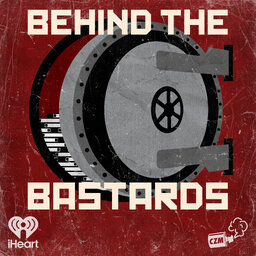Robert is joined by James Stout to discuss the Tobacco Industry.
(2 part series)
FOOTNOTES:
- https://daily.jstor.org/a-brief-history-of-tobacco-in-america/
- https://www.africaresource.com/rasta/sesostris-the-great-the-egyptian-hercules/james-buchananduke-father-of-the-modern-cigarette-by-william-kremer/comment-page-1/
- https://library.duke.edu/rubenstein/scriptorium/eaa/tobacco.html
- https://library.duke.edu/rubenstein/scriptorium/eaa/duke-doc.html
- https://sites.middlebury.edu/smokingkills/forms-of-tobacco-advertisement/ https://csts.ua.edu/files/2016/09/A-History-of-Tobacco-Trading
- https://www.ncbi.nlm.nih.gov/pmc/articles/PMC5402187/
- https://www.ncbi.nlm.nih.gov/pmc/articles/PMC3490543/?report=classic#bib3 https://www.jstor.org/stable/40469740
- https://www.ncbi.nlm.nih.gov/pmc/articles/PMC1470496/?report=classic
- https://www.google.com/books/edition/The_Cigarette/JX6mDwAAQBAJ?hl=en&gbpv=1&printsec=frontcover
- http://www.cigarettecentury.com/
In 1 playlist(s)
Behind the Bastards
There’s a reason the History Channel has produced hundreds of documentaries about Hitler but only a …Social links
Follow podcast
Recent clips

Part Four: Prince Mohammed Bin Salman: The Tyrant of Saudi Arabia
1:03:32

Part Three: Prince Mohammed Bin Salman: The Tyrant of Saudi Arabia
1:04:54

Part Two: Prince Mohammed Bin Salman: The Tyrant of Saudi Arabia
49:57
 Behind the Bastards
Behind the Bastards